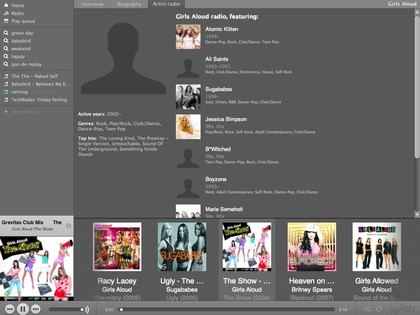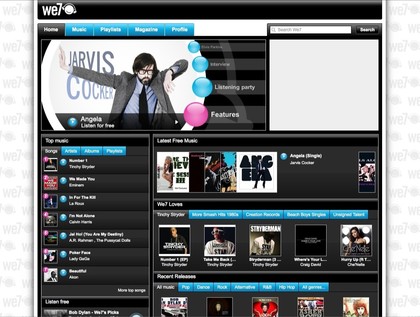The problem with free - you still gotta pay
Free content doesn't come cheap. So who's going to pay for it?
Sign up for breaking news, reviews, opinion, top tech deals, and more.
You are now subscribed
Your newsletter sign-up was successful
Paying for P2P
Ah, you're probably thinking. Why bother with servers? If services use peer to peer, you don't need to worry about the bandwidth bills, or the servers, or the electricity bills. That's true, but transferring all those files still costs money. You're just passing on the cost to somebody else.
That's one of the reasons why ISPs have been so vocal about the iPlayer. The license fee means the BBC can offer iPlayer content for nothing, but somebody's got to get the video from the iPlayer to your PC. According to ISP PlusNet early last year, the iPlayer bumped ISPs' bandwidth costs for the iPlayer alone from 6.1p per month per user to 18.3p per month.
ISPs could always demand cash from the Beeb, but the iPlayer isn't the only bandwidth hungry service out there - and of course, there's Bittorrent. All those Linux distributions, pirated movies and cracked software packages take enormous amounts of bandwidth, and when you factor in HD movie streaming and all the other things we're beginning to expect, it's no surprise that ISPs' bills are soaring.
As Richard Bennet writes about Time Warner (TWC), "TWC's consumption per user has been increasing roughly 40 per cent per year, and there's no reason to assume it will do anything but increase as more HDTV content becomes available on the web, people connect more devices and video calling becomes more popular."
That means ISPs are in an awkward situation: their costs are rising but the amount we pay for broadband is falling, and we expect unlimited to mean unlimited.
As the Telco2.net blog puts it: "The problem with the current ISP model is it is like an all you can eat buffet, where one in 10 customers eats all the food, one in a hundred takes his chair home, too, and one in a thousand unscrews all the fixtures and fittings and loads them into a van as well."
Sign up for breaking news, reviews, opinion, top tech deals, and more.

STREAMING COSTS: Streaming music costs around 1p per person per stream. Spotify's millions of free users are costing a fortune
Content costs
The price of bandwidth may be decreasing, but our appetite for it is increasing much more quickly - and bandwidth isn't the only cost for ISPs. With bandwidth bills at some ISPs trebling, free content is hammering ISPs' profit margins, and they need to make that up from somewhere else.
Some ISPs cap connections, others charge heavy downloaders more - Time Warner has temporarily shelved plans to charge as much as $150 per month for broadband in the US - and others are looking at alternative sources of income, such as tracking users' behaviour.
And that's the problem with free. What feels free to us is costing somebody something, whether it's Facebook's electricity, We7's royalty payments or ISPs' bandwidth bills.
The move to free content is like a game of pass the parcel where the parcel contains a great big bill. Whoever ends up holding the parcel will have to pay it, and to do that they'll have to get money from somewhere. That somewhere will always be you.
You might not pay the content creators directly, but unless you prefer webcams to The Wire you'll still pay, either in the form of bigger ISP bills, restrictions on your broadband connection or your ISP selling your personal data so that people can sell you things.
While you're beating The Man by downloading via bittorrent, The Man's capping your bandwidth, throttling your ports and installing Phorm.

FREE MUSIC: To make ad-funded music work you need to earn £10 per 1,000 listens - and that's just to pay the royalty bill

Contributor
Writer, broadcaster, musician and kitchen gadget obsessive Carrie Marshall has been writing about tech since 1998, contributing sage advice and odd opinions to all kinds of magazines and websites as well as writing more than twenty books. Her latest, a love letter to music titled Small Town Joy, is on sale now. She is the singer in spectacularly obscure Glaswegian rock band Unquiet Mind.